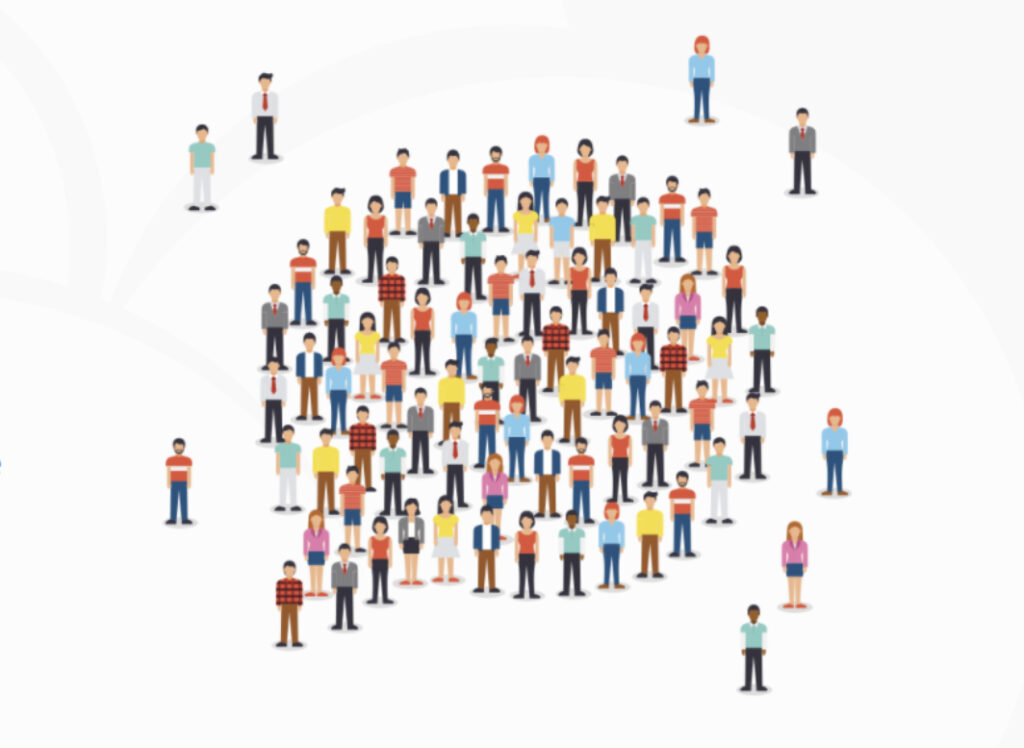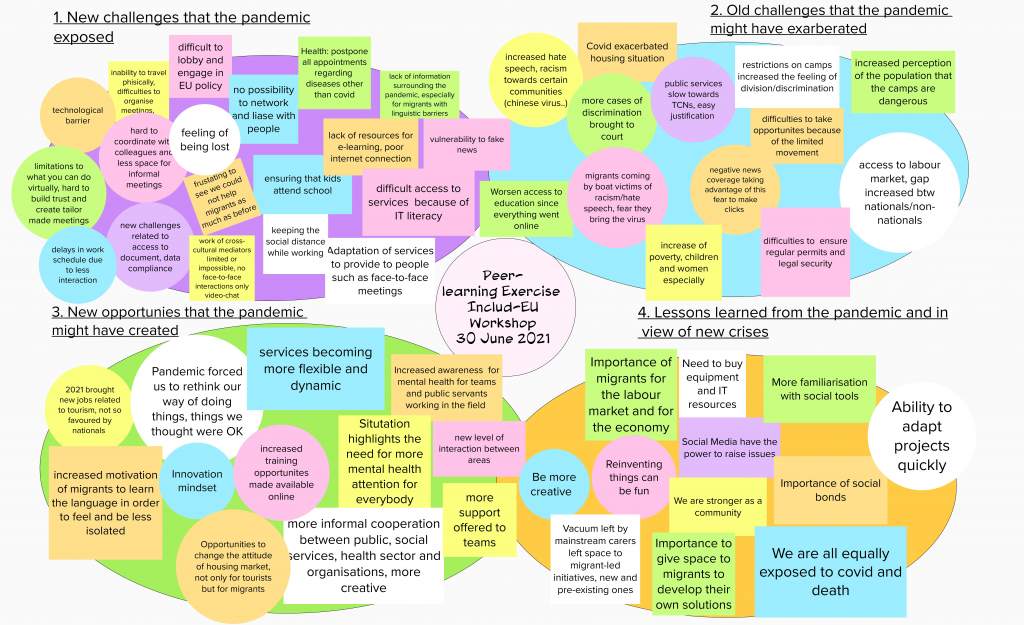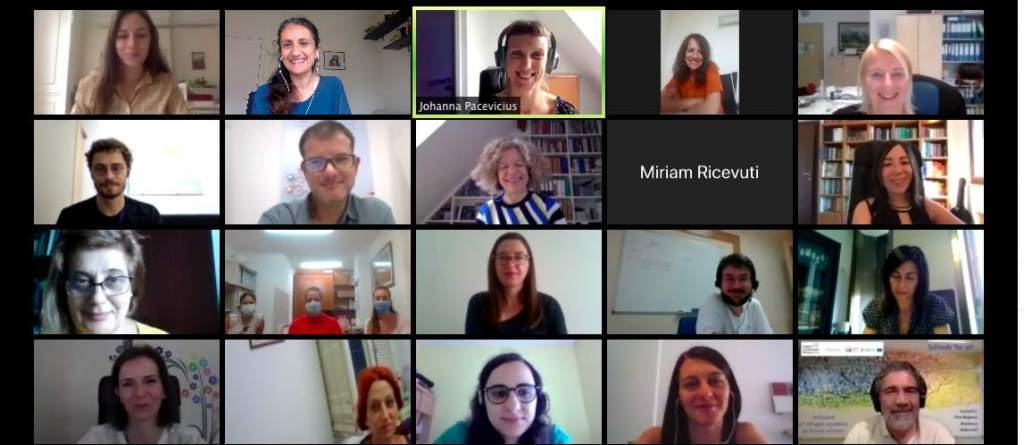News
Workshop: Looking Back at the Includ-EU First Regional Peer-2-Peer Learning
First Includ-EU Regional Workshop, analysing and sharing problems and challenges

We live in an increasingly complex society. There are no easy solutions or easy answers to the many challenges we are facing today, and the ones presented by migration, integration and inclusion are no exception. Policies and service designers must make sure these mirror the complexity of realities around us.
That is why our first Includ-EU Regional Workshop focused not on discussing solutions, but analysing and sharing problems and challenges in our ever-changing Europe, in a collaborative way, and with peer-to-peer dialogue.
The past few months have been challenging for all of us. The restrictions affected our work and social cohesion, especially for migrants but there are a few lessons learned that we can bring with us and that can help improve the near-future situation, and in light of new unpredictable crises.
In her opening speech Geertrui Lanneau, Senior Regional Labour Mobility and Human Development Specialist, at International Organization for Migration (IOM), reminded us how migration is still very high on the European Agenda with the EU pact on migration and asylum passed last year and followed by the EU action plan on integration. At the same time, she stressed how it is not the EU that finally implements the integration action, but the Member States, and in particular, the local and regional levels are the centre stage.
This webinar collectively brainstormed around new challenges raised by the pandemic as well as old challenges that the pandemic might have exacerbated, both in the way we work and provide services, and in the way migrants and vulnerable communities would interact with the community.
The fact that all participants had experienced similar challenges, had seen similar opportunities and learned similar lessons despite the different geographical contexts, was very surprising and helped create a warm atmosphere of collaboration that lasted throughout the workshop, which lasted 2 days, and it felt a very special and unique moment!

Becoming familiar with design for change
In the second session of the day, Abram El-Sabagh, a service designer and the founder of Design for Impact, led us through some exercises and discussion on good service designing, while sharing his own personal journey. It is easy to read 10 books about system change and design, but it is harder to apply all the theories that you learn in real life. Abram explained how his path led him to go into the field, talk and interact with different people from many professional and social backgrounds, rather than keep learning on his own. Eventually, he gathered more and more skills that are useful to design services and testing powerful ideas, until he was skilled enough to lead his own project.
He touched upon many concepts, but few of them resonated particularly among the participants.
Emergence is one key concept in complex systems that is worth explaining, as it means that because of the complexity and the many actors involved, one cannot predict behaviour, or be sure of what will happen before you test an idea and that’s why it is therefore important to test hypotheses. As a consequence, running parallel fail-safe experiments and interacting with the system is the only way we can truly understand it.
When running an experiment, it is important to test behaviours and not intentions, as many times these intentions do not translate into behaviour (just think about your new year’s eve resolutions..). A final concept to keep in mind in testing hypotheses is that correlation does not equal causation -although these two often get mistaken- meaning that just because two things correlate does not necessarily mean that one causes the other.

What did participants learn?
Mainly 2 things came up from the different teams:
- You need to involve many people, not just the usual suspects.
- It is important not just to co-design services in a participative way but we should also aim to co-create and co-decide on a political level. It is essential to cooperate at all stages of a project or process, “ If you want to go far, go together”.
Good practices and Hard-won Wisdom through the Includ-EU Marketplace
After the insightful and comprehensive presentation by Ms Angelique Petrits (DG Home, European Commission) on the new Action Plan on Integration and Inclusion (2021-27) and its 4 key areas -Education, Employment, Health, Housing-, the morning of Day 2 continued with a dynamic market-place exercise.
Here different regions and municipalities presented their own future strategy for integration, but showcased good practices and successful projects from the past programming period. We are happy to share here all presentations which are available below for you to browse.
Projects:
- Valencia (Spain): Strategy on Migration Pilot Experience
- Italy: Regional Plan for the Socio-Economic Integration of TNCs witg Focus on COMMIT Projects
- Jesenice (Slovenia): Project School for Adults
- Cluj Napoca (Romania): Integration Strategy
- Murcia (Spain): Project Murcia Acoge
Do you want to share your project with our community and stakeholders?